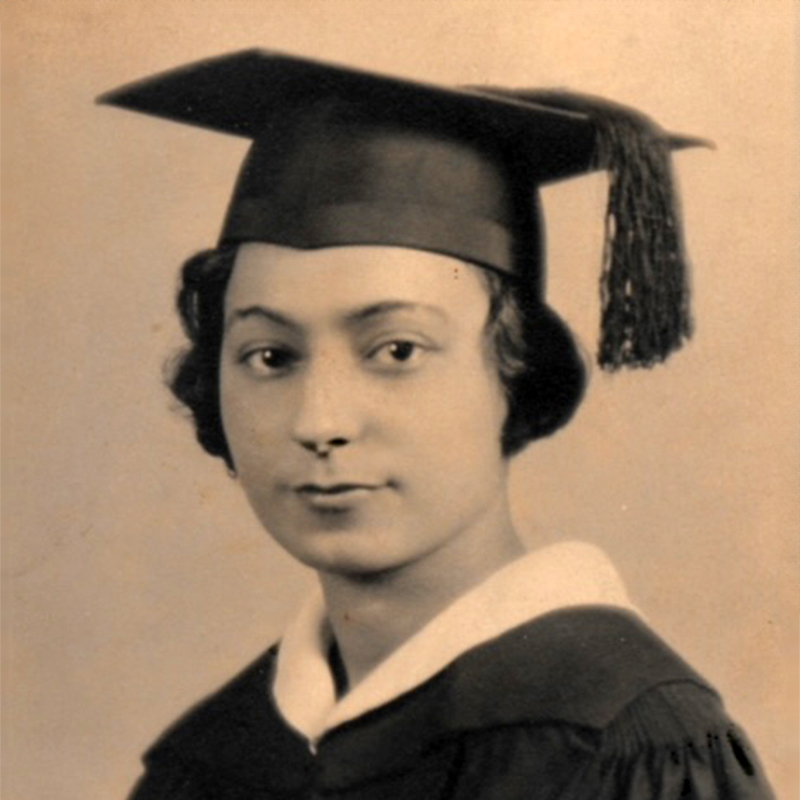Sorority sisters in service to their Cambridge, blazing the trail in law and dental medicine
We begin our Black History Month series with the stories of two remarkable 20th-century Cambridge women who were trailblazers in the fields of law and dental medicine. You can find new Cambridge Black History Project bookmarks honoring them and six other remarkable Black Cantabrigians at the city’s public library branches. The project also distributes the bookmarks free to our city’s schools.
Black History Month was the brainchild of historian Dr. Carter G. Woodson and founded as Negro History Week. The concept was launched in this area in the Boston Public Schools in 1925 by Wilhelmina Crosson, one of the few Black teachers in the Boston school system. Both of today’s trailblazers have ties to Crosson.
We hope readers learn from and enjoy this series. You can learn much more Cambridge Black history at our website.
![]()
Rowena Easterling Taylor

Rowena Taylor. (Photo: Taylor family)
Rowena Easterling was born in Cambridge in 1902 to William H. Easterling and Nancy (Mary) Richardson. She graduated in 1920 from Cambridge High and Latin School. After finishing the exclusive Ethel Downes Business School, Rowena earned a law degree from Portia Law School (now New England School of Law). Her passing of the bar exam was heralded in an October 1938 Boston Globe article as “marking one of the few times a local colored woman has passed the Massachusetts Bar.” She was admitted to federal practice in 1942.
At the time of Rowena Easterling’s engagement to William McKinley Taylor, whom she married in 1928, her address was 57 Howard St. She lived with her husband at 193 Fayerweather St. The Taylors were lifelong members of Saint Bartholomew’s Church. After her husband’s death in 1973, Rowena moved to Bedford, where she died in 2000 at age 98.
Rowena Taylor had a distinguished career: She was a contract officer for the state Department of Mental Diseases (now Mental Health); a Cambridge assistant city solicitor; and a lawyer in private practice with an office in the Abbot Building in Harvard Square. The 1950 census and city directories list her occupation as accountants, though.
She was also active in community service as a member or leader of many organizations, including the Alpha Kappa Alpha sorority, Massachusetts Association of Women Lawyers, Club 49 of Cambridge, West Cambridge Neighborhood Association and the Aristo Club. She served as vice president of the latter, an organization of professional women of color in Greater Boston whose mission was to teach Negro (Black) History in the Boston Public Schools and to raise money to provide college scholarships. Wilhelmina Crosson was the founder of the Aristo Club.
Rowena Easterling Taylor was a trailblazing role model for young women and girls, encouraging them to pursue their career goals, and blazed a trail for others to follow.
![]()
Dr. Mary Crutchfield Wright Thompson

Mary Crutchfield Wright Thompson. (Photo: Cambridge Black History Project)
Mary Crutchfield was born in 1902 in Henderson, North Carolina, to William and Lydia Hatch Crutchfield, and was raised in The Port neighborhood, where the family joined Union Baptist Church. She attended the Boardman and Roberts grammar schools and graduated from Cambridge High and Latin School in 1925. She entered Tufts Dental School that same year – the only Black female student – and graduated in 1930. She was the third Black female graduate and the first to practice in Boston.
Dr. Mary, as she came to be affectionately known, wanted to be a Cambridge Public Schools dentist, but only men could take the qualifying exam. So despite her degree, her first position was dental assistant; When the male-only requirement was dropped, Dr. Mary aced the exam and went to work as a full-fledged dentist. Many Cantabrigians of a certain age will remember her from elementary school as the CPS dentist. Her office was at the old Peabody School on Linnaean Street. Meanwhile, she established a low-cost pediatric dental clinic in the family home at 181 Windsor St., for which she was awarded special recognition for outstanding community service by the Press Club of Boston. The money to support the clinic was provided by the Cox Fund, where her friend Wilhelmina Crosson was a director.
In 1948, Dr. Mary married Oscar (Tom) Thompson. Five years later, they moved to Natick. They helped establish the South Middlesex branch of the NAACP and the Natick Fair Housing Practices Committee – one of the first in the country. They also traveled to Africa in 1960 to celebrate Nigerian Independence Day. So inspired by that trip, Dr. Mary subsequently established a scholarship in Nigeria in her mother’s memory.
At Tufts, Dr. Mary pledged Alpha Kappa Alpha (the same sorority as Rowena Taylor). She devoted several summers to providing free dental services in the sorority’s Mississippi Health Project. Later, she was elected chapter president and Northeast regional director. In 1976 the sorority established a scholarship for Black female dental students at Tufts in her name.
![]()
About the Cambridge Black History Project
 The Cambridge Black History Project is an all-volunteer organization of individuals having deep roots in Cambridge. We are committed to researching, accurately documenting, preserving and illuminating the journeys, accomplishments and challenges of Black Cantabrigians, and to raising awareness of their stories through educational outreach to the Cambridge community and beyond.
The Cambridge Black History Project is an all-volunteer organization of individuals having deep roots in Cambridge. We are committed to researching, accurately documenting, preserving and illuminating the journeys, accomplishments and challenges of Black Cantabrigians, and to raising awareness of their stories through educational outreach to the Cambridge community and beyond.


